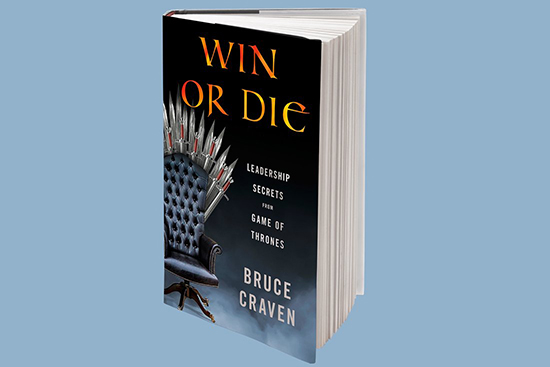
|
喬治·RR·馬丁的奇幻巨著《冰與火之歌》里寫道,當(dāng)“權(quán)力的游戲”上演時,不成功便成仁,沒有中間地帶。幸運的是,現(xiàn)實生活中的爭斗風(fēng)險沒有這么殘酷。 但在新作《要么贏要么死:〈權(quán)力的游戲〉揭示的領(lǐng)導(dǎo)秘密》(Win or Die: Leadership Secrets From Game of Thrones)(Thomas Dunne Books出版)中,哥倫比亞商學(xué)院的教授布魯斯·克萊恩指出,通過《冰與火之歌》虛構(gòu)的維斯特洛大陸上各色人物勾心斗角,我們的確可以從中吸取到一些可應(yīng)用到現(xiàn)實生活的教訓(xùn)。無論是書迷,還是HBO改編的電視劇《權(quán)力的游戲》粉絲,閱讀克萊恩從戰(zhàn)略角度分析書中角色個人發(fā)展和動機都會覺得很有趣。克萊恩的處理方式和原著作者馬丁的很像。他并沒有把角色們看得高高在上,從一開始,他就給了一條簡單明了的建議:“不要做奈德·史塔克。”(注:《冰與火之歌》中的北境領(lǐng)主)克萊恩認為,史塔克過于看重個人價值觀。“領(lǐng)導(dǎo)者理應(yīng)充分了解(他們的)價值觀面臨哪些挑戰(zhàn)和機遇。”克萊恩寫道。 |
It is said in George R.R. Martin’s fantasy saga, A Song of Ice and Fire, that when you play the Game of Thrones, you win or die—there is no middle ground. In real life, mercifully, the stakes aren’t so brutally high. Yet as Columbia Business School professor Bruce Craven describes in Win or Die: Leadership Secrets From Game of Thrones (Thomas Dunne Books), there are real-world lessons to be gleaned from the political machinations of fictional Westeros. Fans of the multi-book series or HBO’s adaptation will enjoy Craven’s analyses of characters’ personal development and motivations in strategy. Much like Martin’s treatment, Craven doesn’t put the heroes on pedestals—starting with the blunt advice: “Dont be Ned Stark,” who placed so much weight on his own values, believing them to be objective, that it cost him his head. “Leaders have an obligation to understand the challenges and opportunities presented by [their] values, Craven writes. |

|
如果有志爬上高管位置,想努力磨練人際相處技巧,拜讀克萊恩的新書可能獲益更多,因為書中分步驟解析了管理層在自我宣傳、社會意識和人際關(guān)系方面的操作。《冰與火之歌》的女主人公之一瑟曦·蘭尼斯特曾說,在權(quán)力的游戲中,要么贏要么死,沒有中間地帶。但克萊恩認為,如果領(lǐng)導(dǎo)者有適應(yīng)能力,抱有信心支持同事,至少還有中間路線可循。(財富中文網(wǎng)) 本文原載于2019年3月刊的《財富》雜志。 譯者:Pessy 審校:夏林 |
Would-be senior managers looking to hone their people skills might glean more as Craven breaks down step-by-step exercises in self-advocacy, social awareness, and relationship management. And, despite what Cersei Lannister says, there is still a middle ground—at least, according to Craven, when you lead with adaptability and support colleagues with confidence. This article originally appeared in the March 2019 issue of Fortune. |






